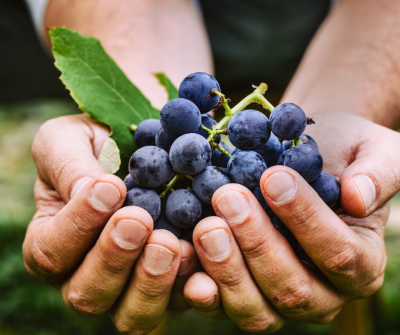
‘As we begin the lenten season, let us remember the call to fasting and spiritual reflection. May we confront the urgency for righteousness in our global food system, where one-third of food is wasted and environmental damage is profound. We are challenged to advocated for compassionate and healthy eating, by using our diets to embody our faith and stewardship of creation.
February 14th is the start of lent, the countdown to look forward to Easter. It is also a time of fasting, of saying ‘no’ to Earthly desires and saying ‘yes’ to God. The Wesleyan Encyclopedia describes fasting as an act of righteousness that brings us closer to God. And when it comes to our global food system, there is much need for righteousness.
A large part of solving these issues is changing what we eat. The two main food solutions that scientists calculated are reducing food waste and consumption of meat and dairy. That’s because too much food is wasted in every region and around 80% of farmland is used to feed animals. This means we are feeding farm animals first while other humans are still hungry.
We are called to be stewards of creation, to care for the poor, and maintain our bodies as a healthy temple. Food is where all these come together. John Wesley himself was a vegetarian because he wanted to extend compassion to animals and believed it was the healthiest choice. It’s not simply about becoming vegetarian but using our food as a force for God’s kingdom.’
The choices are
1) Fasting from beef
Beef has the largest environmental impact of all foods and is the number one cause of deforestation. If you want to go a step further, you could also fast from meat in general.
2) Fasting from cheese
Because cows require a lot of land, cheese has a bigger environmental footprint than many forms of meat. Often, the easiest way to replace meat is using cheese. So fasting from cheese is a powerful step.
3) Fasting from ‘wasted bread’
Across the world, grain products are the largest source of food waste if you look at it in terms of calories. Many times this happens because bread becomes old and we prefer fresh bread. To make it easier to focus, this action is about wasted bread, but you can extend it to waste less food in general.
4) Eating legumes every day
Beans, chickpeas, lentils and peas are known as ‘legumes’ and are the most important building block for a healthy and sustainable diet. This action is about trying to eat at least one portion of legumes a day. Instead of abstaining from something ‘bad’, this is about focusing on something ‘good’.
5) More organic & Fairtrade
This action is about paying farmers a fair price. You could start by choosing three items you buy often, and commit to buying the organic and/or Fairtrade option for the entire lent period.

